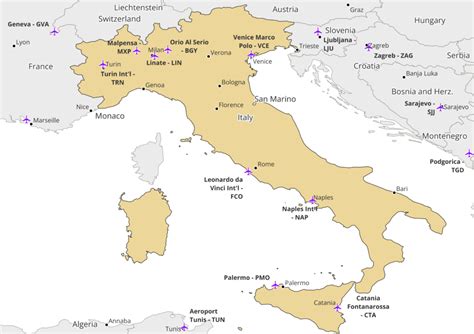
Immigration and Customs Enforcement (ICE) conducted enforcement operations targeting a nightclub and multiple restaurants in California this week, resulting in several arrests and raising concerns about the agency’s focus and tactics.
Federal immigration authorities executed enforcement actions at several businesses in California this week, including a nightclub and a number of restaurants, leading to the apprehension of multiple individuals suspected of immigration violations. ICE confirmed the operations, stating they were conducted to uphold federal immigration laws.
According to ICE spokesperson Marieanne Binkowski, the operations took place on Wednesday. While Binkowski did not provide specific locations of the businesses targeted, she stated that the enforcement actions were “lawfully conducted.” She added, “ICE conducts targeted enforcement operations daily in compliance with federal laws and agency policy.” These operations often focus on individuals who pose a threat to national security or public safety, or those who have violated immigration laws.
The scope of the raids and the number of individuals detained remain unclear. However, the actions have already ignited debate among community members, immigration advocates, and local officials, renewing discussions about the role of ICE in California and the impact of such operations on local communities and economies.
The raids come amidst ongoing national debates over immigration policy and enforcement. They also highlight the tension between federal immigration laws and California’s sanctuary policies, which limit state and local law enforcement cooperation with federal immigration authorities. This situation has created a complex legal and political landscape for immigration enforcement in the state.
Details of the Enforcement Actions
While ICE has not disclosed the names or locations of the businesses targeted, sources within the affected communities have indicated that at least one nightclub and several restaurants were involved. The specific reasons for targeting these particular establishments have not been officially released, but ICE typically initiates such operations based on leads or intelligence suggesting that undocumented immigrants are employed at these locations or that other immigration violations are occurring.
During the operations, ICE agents entered the businesses, identified individuals suspected of being in the country illegally, and conducted interviews and document checks. Those found to be in violation of immigration laws were taken into custody. The process can be disruptive, often causing fear and anxiety among employees and patrons, regardless of their immigration status.
The raids are expected to have a ripple effect, potentially impacting the workforce of these businesses and creating a chilling effect in the broader community. Employers could face scrutiny for their hiring practices, and employees may be hesitant to report to work, fearing deportation.
Community and Advocacy Group Response
News of the ICE raids has triggered immediate responses from community organizations and immigration advocacy groups. Many have expressed outrage and concern, condemning the operations as heavy-handed and detrimental to the well-being of immigrant communities.
“These raids instill fear and disrupt families, tearing apart the fabric of our communities,” said one advocate from a local immigrant rights organization. “We need to focus on comprehensive immigration reform that provides a pathway to citizenship, not on these divisive and destructive enforcement actions.”
Advocacy groups are mobilizing to provide legal assistance and support to those affected by the raids. They are offering Know Your Rights trainings to help immigrants understand their legal rights during interactions with ICE agents. They are also urging community members to document any instances of abuse or misconduct by ICE officials.
Furthermore, they are calling on local and state officials to strengthen protections for immigrants and to resist federal immigration policies that they believe are unjust and inhumane.
Legal and Political Context
The ICE raids in California take place within a complex legal and political framework. California has enacted a number of sanctuary laws designed to limit state and local law enforcement cooperation with federal immigration authorities. These laws are intended to protect the rights of immigrants and to ensure that local resources are not used to enforce federal immigration laws.
However, federal immigration laws supersede state laws, and ICE has the authority to conduct enforcement operations in California regardless of the state’s sanctuary policies. This creates a tension between federal and state authorities and leads to ongoing legal and political battles over immigration enforcement.
The Trump administration aggressively pursued immigration enforcement, increasing the number of ICE agents and expanding the scope of enforcement operations. While the Biden administration has signaled a shift toward a more humane approach to immigration enforcement, ICE continues to conduct enforcement operations, albeit with a purported focus on those who pose a threat to national security or public safety.
Impact on Local Economies
The raids also have a potential impact on local economies, particularly in sectors that rely heavily on immigrant labor. Restaurants, construction, agriculture, and hospitality are among the industries that could be affected. When ICE conducts enforcement operations, it can disrupt the workforce, lead to labor shortages, and create economic uncertainty.
Some businesses may face difficulties in finding replacement workers, while others may be forced to close down altogether. This can have a negative impact on local communities, leading to job losses and reduced economic activity.
Moreover, the fear of deportation can discourage immigrants from participating in the economy, further exacerbating these economic challenges.
Future of Immigration Enforcement
The recent ICE raids in California raise questions about the future of immigration enforcement under the Biden administration. While the administration has pledged to prioritize enforcement against those who pose a threat to national security or public safety, it remains to be seen how this policy will be implemented in practice.
Immigration advocates are calling on the administration to end the use of large-scale raids and to focus on more targeted enforcement actions. They also want the administration to prioritize comprehensive immigration reform that provides a pathway to citizenship for undocumented immigrants.
The debate over immigration enforcement is likely to continue in the coming years, as the country grapples with the challenges of balancing border security, economic needs, and humanitarian concerns.
ICE’s Perspective
ICE maintains that its enforcement actions are necessary to uphold federal immigration laws and to protect national security. The agency argues that it is targeting individuals who have violated immigration laws and who may pose a threat to public safety.
“ICE is committed to enforcing federal immigration laws in a fair and impartial manner,” said Binkowski. “Our enforcement actions are focused on those who pose a threat to our communities.”
The agency also emphasizes that it respects the rights of all individuals, regardless of their immigration status. ICE agents are trained to conduct enforcement operations in a professional and respectful manner, and they are required to adhere to strict guidelines and policies.
Dissenting Voices
Critics of ICE argue that the agency’s enforcement actions are often discriminatory and disproportionately target minority communities. They point to instances of alleged abuse and misconduct by ICE agents, and they argue that the agency’s enforcement policies are inhumane and unjust.
“ICE has a long history of violating the rights of immigrants,” said one critic. “The agency needs to be held accountable for its actions, and its enforcement policies need to be reformed.”
Critics also argue that ICE’s enforcement actions are not effective in deterring illegal immigration. They contend that the root causes of illegal immigration are economic inequality and lack of opportunity in immigrants’ home countries. They argue that the best way to address illegal immigration is to address these root causes and to create more opportunities for legal immigration.
Detailed Breakdown of the Legal Framework
The legal framework governing immigration enforcement in the United States is complex and multifaceted, encompassing both federal statutes and case law. The Immigration and Nationality Act (INA) forms the bedrock of immigration law, outlining the conditions for entry, stay, and removal from the United States. This act delegates significant authority to the executive branch, specifically the Department of Homeland Security (DHS), to enforce immigration laws.
Within DHS, ICE is the primary agency responsible for enforcing immigration laws within the interior of the United States. ICE’s authority extends to investigating, arresting, and detaining individuals suspected of violating immigration laws. The agency’s powers are broad, but they are not unlimited. The Fourth Amendment of the U.S. Constitution protects individuals from unreasonable searches and seizures, and this protection applies to immigrants as well.
This means that ICE agents generally need a warrant to enter a private residence or to conduct a search. However, there are exceptions to this rule, such as when there is probable cause to believe that a crime has been committed or when there is a risk of imminent harm.
In addition to constitutional protections, immigrants also have certain rights under federal immigration laws. For example, they have the right to an attorney in deportation proceedings, although the government is not required to provide them with one. They also have the right to apply for asylum or other forms of relief from deportation.
The legal framework also addresses the relationship between federal and state law. Under the Supremacy Clause of the U.S. Constitution, federal laws are supreme to state laws. This means that federal immigration laws generally preempt state laws that conflict with them. However, states can pass laws that provide additional protections for immigrants, as long as those laws do not conflict with federal law.
California’s sanctuary policies are an example of state laws that seek to protect immigrants. These policies limit state and local law enforcement cooperation with federal immigration authorities. The goal of these policies is to ensure that local resources are not used to enforce federal immigration laws and to protect the rights of immigrants.
The Role of Technology in Immigration Enforcement
Technology is playing an increasingly important role in immigration enforcement. ICE uses a variety of technologies to identify, track, and apprehend individuals suspected of violating immigration laws. These technologies include:
- Databases: ICE has access to a vast array of databases containing information about individuals, including their immigration status, criminal history, and travel records.
- Surveillance Technology: ICE uses surveillance technology, such as drones and cameras, to monitor border areas and to track individuals suspected of being in the country illegally.
- Facial Recognition Technology: ICE is experimenting with facial recognition technology to identify individuals in public places.
- Social Media Monitoring: ICE monitors social media platforms to identify individuals who may be violating immigration laws.
The use of technology in immigration enforcement raises a number of concerns. Critics argue that these technologies can be used to discriminate against minority communities and to violate individuals’ privacy rights. They also argue that the use of technology can lead to errors and inaccuracies, which can have serious consequences for immigrants.
The Economic Impact of Immigration
The economic impact of immigration is a subject of ongoing debate. Some argue that immigrants take jobs away from native-born workers and depress wages. Others argue that immigrants contribute to the economy by filling labor shortages, starting businesses, and paying taxes.
There is a growing body of research that suggests that immigration has a positive impact on the economy. Immigrants are more likely to start businesses than native-born workers, and they contribute to innovation and economic growth. They also fill labor shortages in sectors such as agriculture and construction, which helps to keep prices down.
Immigrants also pay taxes, which helps to fund government services. While some immigrants may receive public benefits, they also contribute to the economy through their labor and consumption.
The economic impact of immigration is complex and multifaceted. However, the evidence suggests that immigration has a positive impact on the economy overall.
The Social and Cultural Impact of Immigration
Immigration also has a significant social and cultural impact. Immigrants bring new ideas, customs, and traditions to the United States, which enriches the country’s cultural diversity. They also contribute to the country’s social fabric by volunteering in their communities and participating in civic life.
However, immigration can also lead to social and cultural tensions. Some people may feel threatened by the arrival of new immigrants, and they may worry about the impact of immigration on their communities. It is important to address these concerns and to promote understanding and tolerance between different groups.
The Role of Education and Public Awareness
Education and public awareness are crucial for promoting understanding and tolerance towards immigrants. Schools, community organizations, and the media can play a role in educating the public about the benefits of immigration and the challenges that immigrants face.
It is also important to promote dialogue between different groups and to create opportunities for people to learn about each other’s cultures and experiences. By fostering understanding and tolerance, we can create a more welcoming and inclusive society for immigrants.
The Ethical Considerations of Immigration Enforcement
Immigration enforcement raises a number of ethical considerations. It is important to balance the need to enforce immigration laws with the need to protect the rights and dignity of immigrants.
ICE agents should be trained to conduct enforcement operations in a fair and respectful manner, and they should be held accountable for any instances of abuse or misconduct. It is also important to ensure that immigrants have access to legal representation and that they are treated fairly in deportation proceedings.
The debate over immigration enforcement is not just a legal and political debate; it is also an ethical debate. It is important to consider the ethical implications of immigration enforcement policies and to strive for policies that are both just and humane.
Conclusion
The ICE raids in California highlight the ongoing challenges and complexities of immigration enforcement in the United States. The raids have sparked outrage among community members and immigration advocates, raising concerns about the agency’s tactics and the impact of such operations on local communities and economies.
The legal and political landscape surrounding immigration enforcement is complex, with tensions between federal immigration laws and California’s sanctuary policies. The raids also have a potential impact on local economies, particularly in sectors that rely heavily on immigrant labor.
The future of immigration enforcement under the Biden administration remains uncertain, and the debate over immigration enforcement is likely to continue in the coming years. It is essential to balance the need to enforce immigration laws with the need to protect the rights and dignity of immigrants, and to strive for policies that are both just and humane. Education and public awareness are crucial for promoting understanding and tolerance towards immigrants, and for creating a more welcoming and inclusive society for all.
Frequently Asked Questions (FAQs)
1. Why did ICE conduct raids in California?
ICE conducts raids to enforce federal immigration laws. According to ICE spokesperson Marieanne Binkowski, the operations were “lawfully conducted” and part of the agency’s daily targeted enforcement efforts, which focus on individuals who pose a threat to national security or public safety, or those who have violated immigration laws. The specific reasons for targeting the businesses in question have not been officially disclosed, but such operations are often based on leads or intelligence suggesting undocumented immigrants are employed at these locations or that other immigration violations are occurring.
2. What are California’s “sanctuary policies” and how do they affect ICE enforcement?
California’s “sanctuary policies” are state laws designed to limit the cooperation of state and local law enforcement agencies with federal immigration authorities. These policies aim to protect the rights of immigrants and ensure local resources are not used to enforce federal immigration laws. While these policies aim to create a buffer between federal immigration enforcement and local communities, federal immigration laws supersede state laws. ICE retains the authority to conduct enforcement operations in California, regardless of these policies, creating tension between federal and state authorities.
3. What are the potential consequences for businesses that employ undocumented immigrants?
Businesses that employ undocumented immigrants may face various consequences, including fines, civil penalties, and even criminal charges in some cases. ICE may conduct audits of a company’s employment records to verify the eligibility of its employees to work in the United States. Employers are required to verify the employment eligibility of all new hires through the I-9 verification process. If ICE finds that a business has knowingly hired undocumented immigrants, the business may be subject to enforcement actions.
4. What rights do individuals have during an ICE raid?
During an ICE raid, individuals have certain rights, regardless of their immigration status. These include the right to remain silent, the right to refuse to answer questions without an attorney present, and the right to refuse to allow ICE agents to enter their home or business without a warrant (unless there is an emergency situation). Individuals also have the right to contact an attorney. It is crucial for individuals to know their rights and to exercise them during an encounter with ICE agents. Organizations like the ACLU and local immigrant rights groups offer resources and information on these rights.
5. What resources are available for individuals and families affected by ICE raids?
Numerous resources are available to support individuals and families affected by ICE raids. These include legal aid organizations that provide free or low-cost legal representation to immigrants, community organizations that offer social services and support, and advocacy groups that work to protect the rights of immigrants. Some organizations also provide financial assistance to families who have been affected by ICE enforcement actions. Hotlines and rapid response networks are often activated to provide immediate support and information following raids. It’s important to seek assistance from reputable organizations that understand immigration law and can provide accurate advice.









